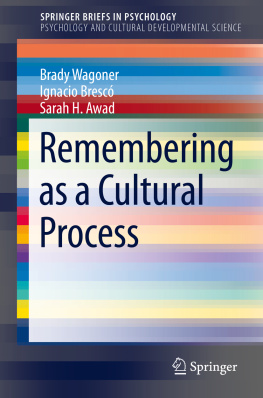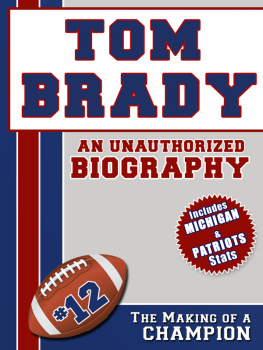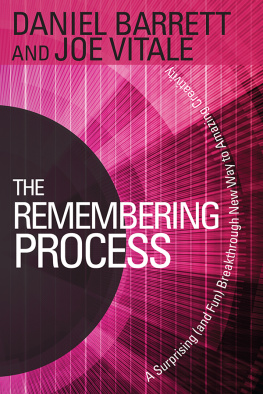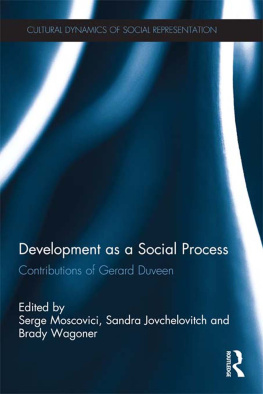Brady Wagoner - Remembering as a Cultural Process
Here you can read online Brady Wagoner - Remembering as a Cultural Process full text of the book (entire story) in english for free. Download pdf and epub, get meaning, cover and reviews about this ebook. year: 2019, publisher: Springer International Publishing, genre: Religion. Description of the work, (preface) as well as reviews are available. Best literature library LitArk.com created for fans of good reading and offers a wide selection of genres:
Romance novel
Science fiction
Adventure
Detective
Science
History
Home and family
Prose
Art
Politics
Computer
Non-fiction
Religion
Business
Children
Humor
Choose a favorite category and find really read worthwhile books. Enjoy immersion in the world of imagination, feel the emotions of the characters or learn something new for yourself, make an fascinating discovery.
- Book:Remembering as a Cultural Process
- Author:
- Publisher:Springer International Publishing
- Genre:
- Year:2019
- Rating:4 / 5
- Favourites:Add to favourites
- Your mark:
- 80
- 1
- 2
- 3
- 4
- 5
Remembering as a Cultural Process: summary, description and annotation
We offer to read an annotation, description, summary or preface (depends on what the author of the book "Remembering as a Cultural Process" wrote himself). If you haven't found the necessary information about the book — write in the comments, we will try to find it.
Remembering as a Cultural Process — read online for free the complete book (whole text) full work
Below is the text of the book, divided by pages. System saving the place of the last page read, allows you to conveniently read the book "Remembering as a Cultural Process" online for free, without having to search again every time where you left off. Put a bookmark, and you can go to the page where you finished reading at any time.
Font size:
Interval:
Bookmark:
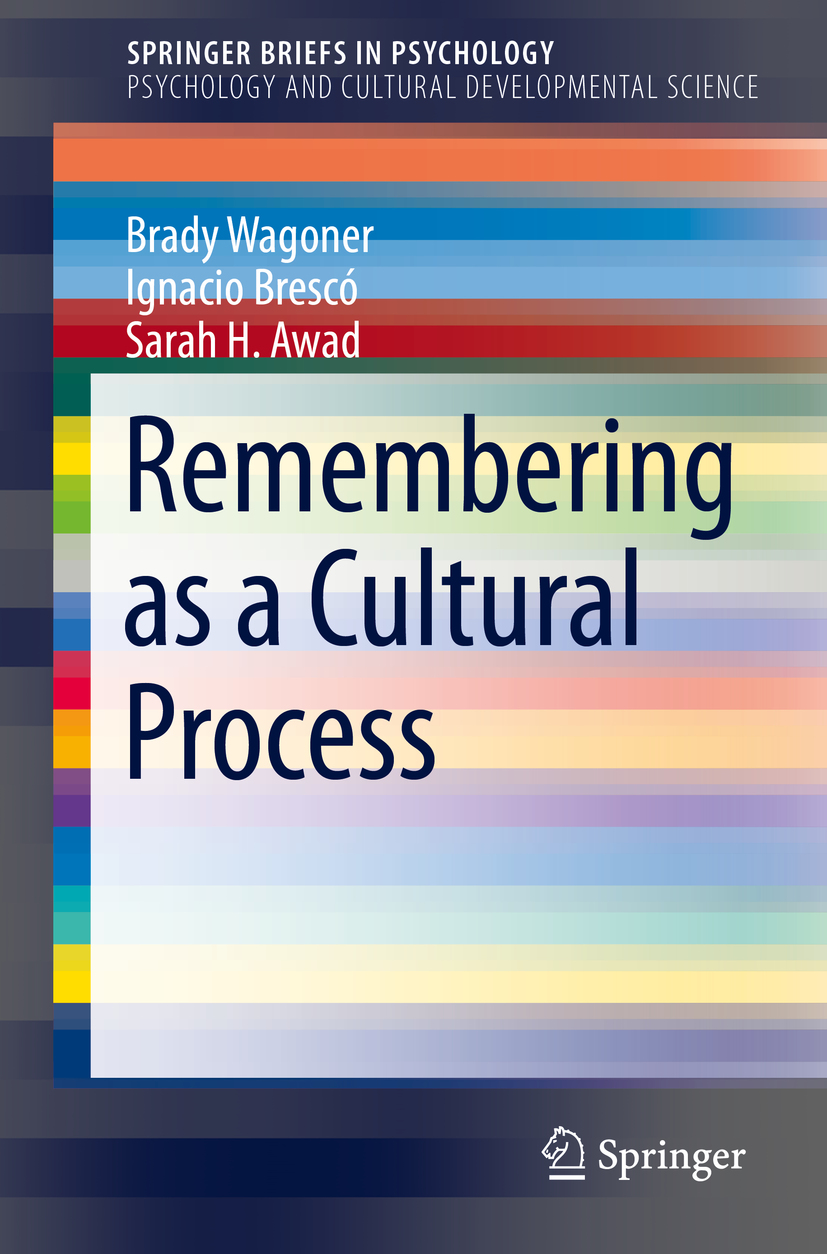
SpringerBriefs in Psychology and Cultural Developmental Scienceis an extension and topical completion toIPBS: Integrative Psychological and Behavioral Science Journal(Springer, chief editor: Jaan Vasiner) expanding some relevant topics in the form of single (or multiple) authored book. The Series will have a clearly defined international and interdisciplinary focus hosting works on the interconnection between Cultural Psychology and other Developmental Sciences (biology, sociology, anthropology, etc). The Series aims at integrating knowledge from many fields in a synthesis of general science of Cultural Psychology as a new science of the human being.
The Series will include books that offer a perspective on the current state of developmental science, addressing contemporary enactments and reflecting on theoretical and empirical directions and providing, also, constructive insights into future pathways.
Featuring compact volumes of 100 to 115 pages, each Brief in the Series is meant to provide a clear, visible, and multi-sided recognition of the theoretical efforts of scholars around the world.
Both solicited and unsolicited proposals are considered for publication in this series. All proposals will be subject to peer review by external referees.
More information about this series at http://www.springer.com/series/15388

This Springer imprint is published by the registered company Springer Nature Switzerland AG
The registered company address is: Gewerbestrasse 11, 6330 Cham, Switzerland
This small book makes a major contributionshowing how the seemingly personal act of remembering is implicitly guided by its preexisting ideological positioning. That positioning may be internalized by a person during ones life course, or suggested by externally situated cultural objects that are encountered peripherally in everyday life (Lyra and Pinheiro 2018; Marsico and Tateo 2019). A monument to a particular event in the past, or the struggle for the visual space where commentaries on the present are painted, whitewashed, and re-painted (political graffitiChap.) are all guidance devices for affective relating that the person is expected to undertake to the society. It is notwhatis remembered buthow one shouldremember that is being socially negotiatedthrough history textbooks, parades of public commemorations, and monuments. It links socially privileged meaning systems with the personal life-worlds. Orat the leastit makes an effort in that direction.
Such guidance for how one is to remember events that one has not, and could not, directly experienced has unique properties. It isaffectively directed,catalytic, andpersistently episodic.
First, human acts of remembering are directedone should remember A (Napoleon as a hero) and not non-A (Napoleon as a mass murderer), and it has to happen in an affectively differentiated way. A hero is to be appreciated, a murderer is to be condemned. It is not coincidental that one of the first casualties of political revolutions are monumentsa hero story of the previous political regime has to be removed from the public view as quickly as possible. The capture of Baghdad by the American forces started from tearing down the huge monument of Saddam Hussein; likewise, after the end of communist-led states in Eastern Europe, the many statues of Lenin ended up in scrap yards.
Second, the suggestions for remembering are nonbinding. They do not determine what is being remembered but create the context for which direction of feeling the act of remembering could take. A popular narrative about Michael Collins as a hero of Irish independencerepeated in families, schools, or pubsis a catalytic device that does not lead to inquiry about who Michael Collins was, but rather to the generalized halo about him; whoever he was, he was a positive actor in history. However, that is the Irish point of view and not one necessarily shared by the British.
Third, the guidance is episodic. It is not part of a specific educational agenda in a here-and-now setting, but a transient moment where some comment about the particular nature of a historical event is made. Thus we all by-passingly refer to velvet revolutions or great warseach of such epithetic mentions is an affect marker that is discursively attached to the meaning of the actual event, and thus distances our remembering efforts from the reality. In the Great War (as World War I was then labeled), an estimated 1519 million people were killed. An occasional remark of it as great gives an episodic suggestion for its remembering. Likewise we all episodically pass by a monument of a general who distinguished himself in a particular warnot thinking of the actual events of the war and about the many people killed who led to the glory of this particular general. Memory is socially suggested to be fragmented, superficial, and affectively accepting the hegemonic message encoded in the words of the parents (about ones great-great-grandparents), school history textbooks, and public monuments.
The innovative solution to the problem of how human memory is socially guided is introduced in this book by re-focusing research on the adaptability and forward-oriented character of memory. Instead of documenting how good (or bad) human memory is in one domain or another, the authors of this book undertake
Font size:
Interval:
Bookmark:
Similar books «Remembering as a Cultural Process»
Look at similar books to Remembering as a Cultural Process. We have selected literature similar in name and meaning in the hope of providing readers with more options to find new, interesting, not yet read works.
Discussion, reviews of the book Remembering as a Cultural Process and just readers' own opinions. Leave your comments, write what you think about the work, its meaning or the main characters. Specify what exactly you liked and what you didn't like, and why you think so.

